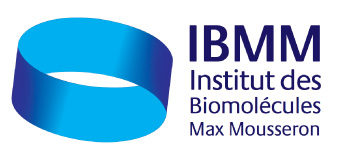4 positions available (Master-2nd year internships) – Green Chemistry and Enabling Technologies team
In 2019, IUPAC recognized mechanochemistry as one of the 10 innovative technologies that would change the world. This technology, and more specifically ball milling, offers numerous benefits linked to environmentally-friendly chemistry (short reaction times, solvent-free reactions, different selectivity compared to solution…). Ball mills can be used in a wide range of applications, including materials chemistry (batteries, polymers, etc.), supramolecular chemistry (MOFs, etc.) and organic chemistry. The Green Chemistry and Enabling Technologies team (www.greenchem.cnrs.fr) of the Institute of Biomolecules Max Mousseron (https://ibmm.umontpellier.fr), a team recognized internationally for its expertise in mechanochemistry and green chemistry, is looking for candidates for the following internship positions, which will be located in Montpellier, in the brand new Chimie Balard campus. To apply, please send your CV and covering letter in pdf format to the contacts mentioned below before October 25, 2024.
Offer 1 – Combining photochemistry and mechanochemistry for a more sustainable chemistry
Photochemistry is a field of chemistry that plays a major role in green chemistry, by taking advantage of light to promote chemical reactions. Combining photoredox catalysis and mechanochemistry is therefore an attractive but still rare approach. Our team recently demonstrated the benefits of mechanophotochemistry in a reductive dehalogenation reaction catalyzed by [Ru(bpy)3](PF6)2 complexes. The project proposes to continue the development of mechanophotochemistry, exploring new reactions, supported photoredox catalysts and reaction conditions. The project is funded by the French National Research Agency (ANR), in collaboration with the CNAM in Paris and the Softmat laboratory in Toulouse.
Contact : with the subject line « Stage M2 – mécanophotochimie ».
Offer 2 – Developing new molecules as tools for optopharmacology
The serotonin receptor 5-HT6 plays a key role in cognitive disorders associated with various neurodegenerative diseases (Alzheimer’s, schizophrenia…). Several signaling pathways are associated with this receptor (Gs, CdK5, mTOR), but the impact of each of these pathways on cognitive disorders has yet to be clearly identified. Our team, in collaboration with Dr P. Marin’s team at the Institut de Génomique Fonctionnelle, has already developed new molecules enabling selective activation of one pathway over the others. In order to better understand the effects of these molecules, the aim of the internship will be to develop the mechanosynthesis of new photoactivatable derivatives, so as to be able to release the active substance on demand and in a restricted, controlled area of the brain.
Contact : with the subject line « Stage M2 – 5HT6 ».
Offer 3 – Development of new heating milling jars for mechanochemistry
One of the limitations of ball milling is the possibility of heating the reaction medium, and this heating is sometimes necessary to reach activation barriers during reactions. Collaborative work between IBMM and ICGM under the ANR FunctioMill program has led to the development of new reactors based on epoxy resin doped with a dye that absorbs in the near infrared, releasing the absorbed energy in the form of heat. This approach has enabled us to obtain heated reactors with good temperature control, which have proven their usefulness in high-energy activation reactions. The aim of the internship will be to improve the formulation of the materials so as to obtain even more efficient and modular jars for use in mechanochemistry under heating.
Contact : et with the subject line « Stage M2 – IR ».
Offer 4 – Mechanosynthesis of novel bioactive compounds
The ANR PDP-Act project aims to develop new biodegradable polymers that can be used as vectors for drug delivery. One of the bioactive molecules of interest is a pseudo-epoxide peptide developed by teams in the ANR consortium. To ensure easy scale-up of this compound and analogues, a mechanochemical synthesis, minimizing the use of organic solvents, will be developed in collaboration with the IBMM Peptide team during the internship.
